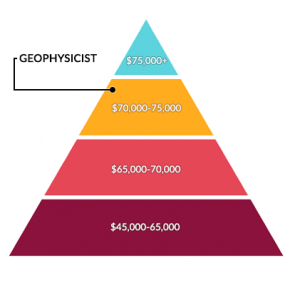All Categories
Featured
Table of Contents
Geophysical Survey Definition in Champion WA 2021
This work is progressively contracted out, so consultancies provide another source of work. Consultancy companies differ in size, from extremely small companies to large multinationals. Some consultancies are quite specialised in using specific geophysical methods or operating in particular locations, while others use a more varied range of services to their consumers.
The extraction of gas from land fill websites is another location of work and this might grow in the future. Exploration business may undertake work for building companies, water companies, mining business and ecological companies, so geophysicists might be employed in any of these settings. Other employers consist of: geological surveysgovernment bodies and agenciesuniversities and research study institutes.


Vacancies may be listed in the oil and gas sector press. Recruitment is affected by oil rate fluctuations and the level of competitors for positions varies depending on this. Careers Days, which cover the full variety of geoscience careers and are generally participated in by a number of key industry companies, are run by The Geological Society.
5 Surface Geophysics in Yangebup WA 2022
A few of the big oil and gas companies offer a full two-year structured training program across the breadth of geophysics, including the opportunity to experience work in various groups before specialising in one location. Your training may include work on: existing wellsmagnetic and gravitational potential field information analysisresearchrock analysis. It's more typical for your initial training to be supplied on the job.

There might be a probationary period throughout which you work together with an experienced associate. Competency-based appraisals happen routinely in a lot of firms. In smaller sized companies, and for scholastic posts, there is not likely to be any formal training - you'll be expected to start work straightaway and get abilities as you go along.
If you work for a smaller sized company, you might find that you need to take responsibility for arranging and moneying your own development and training. If you have a geology degree, subscription of The Geological Society can be useful for networking and for maintaining to date with the market.
Geophysicist: What Is It? And How To Become One? in Kenwick Western Australia 2022
You might likewise find it helpful to sign up with the PESGB (The Petroleum Exploration Society of Great Britain, which has a geophysics special interest group. After a probationary period, and once you've gotten some experience, you might progress to senior geophysicist, then team leader and after that into a senior role in management.
The ease of motion between roles depends upon the company structure. Research study at Masters or Ph, D level in a subject associated to geophysics or geosciences may assist with your career development and progression. The employment market within the oil and gas market is extremely reliant on cost and this might affect your opportunities for career progression.
Not all jobs are dependent on the oil and gas markets. For knowledgeable geophysicists, freelance consultancy provides a good route for profession development. You can also specialise in a specific area of geophysics. As a geophysicist, you're most likely to have several tasks throughout your working life. Global mobility is vital for dealing with peaks and troughs in different nations at various times.
What Does A Geophysicist Do: Duties And Responsibilities in Carmel Western Australia 2023
From geophysics, it's possible to focus on seismology (finishing additional training to end up being a seismic interpreter) or to move into related locations such as engineering geology or hazard prediction.
Deciding what to study in college is a tough option. Even if you understand that your field of interest lies in science, what program of study is right for you? If you make the decision to significant in physical and life sciences and pursue a career as a geophysicist, you're getting ready for an exciting and profitable occupation.
The first step to accomplishing your objective of becoming a geophysicist is earning a degree. Even for entry-level positions in the field of geoscience, you'll need a bachelor's degree (a geophysicist college degree) from a certified college or university. Geophysicists need to be able to: evaluate rocks, photographs, and other pieces of information carry out research study both in the field and in laboratories develop maps and charts of their findings compose reports To achieve all this, students need a specialized education for geophysicist careers.
As mentioned above, you'll need a bachelor's degree in geoscience or an associated discipline, such as a physical science or a natural science, to land an entry-level job. However trainees can likewise prepare by learning topics like: Biology Chemistry Computer system science Engineering Mathematics Physics The above geophysicist majors use a more generalized method to a single scientific discipline, however the majority of programs require trainees to take several geology course.
Table of Contents
Latest Posts
Geophysics, Engineering Geophysics And Applied ... in Carmel Western Australia 2023
Airborne Geophysical Surveys Of The Lower Mississippi ... in Balcatta Oz 2022
Working As A Geophysicist And Oceanographer In Canada in Cannington Australia 2023
More
Latest Posts
Geophysics, Engineering Geophysics And Applied ... in Carmel Western Australia 2023
Airborne Geophysical Surveys Of The Lower Mississippi ... in Balcatta Oz 2022
Working As A Geophysicist And Oceanographer In Canada in Cannington Australia 2023